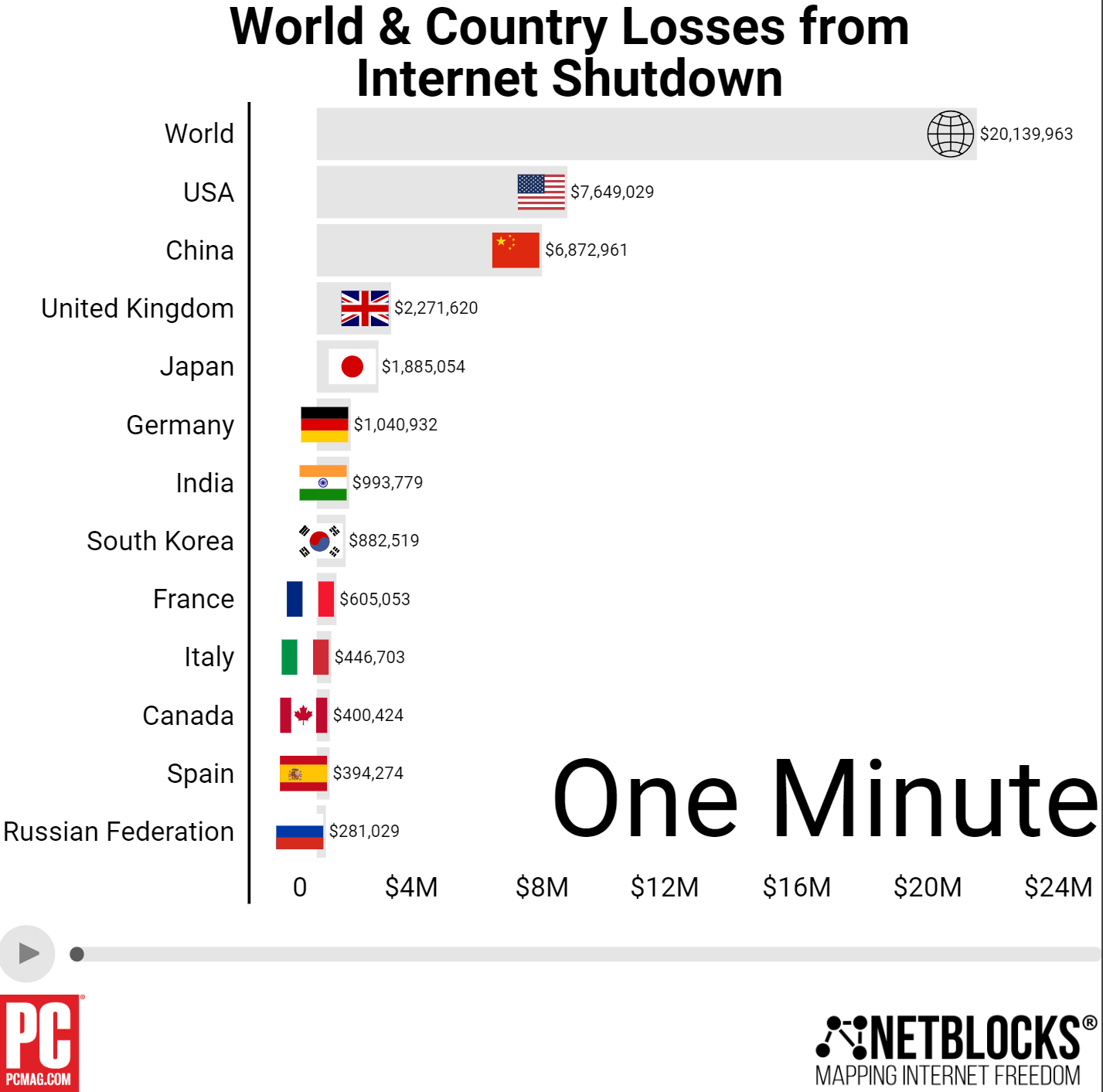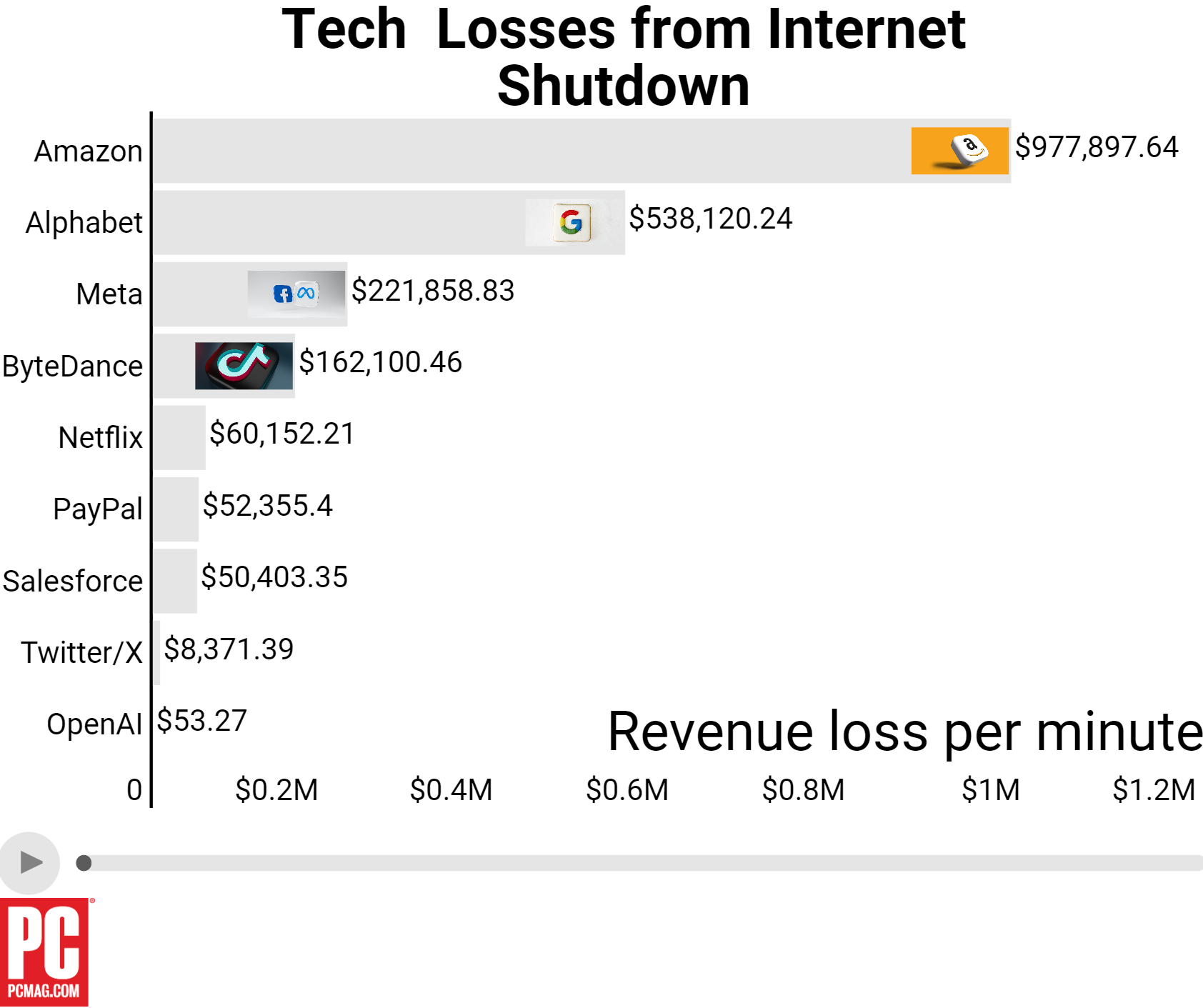In brief: The world's reliance on being online can't be overstated. Even if we lost all internet and mobile connectivity just for a minute, it would cost countries' economies millions of dollars, while big companies would lose hundreds of thousands.
Even though a complete global internet outage is unlikely to happen, the consequences of such an event would be financially disastrous. PCMag used the Cost of Shutdown Tool from NetBlocks to estimate how a shutdown would impact the world economy, individual countries, and big tech companies.
The data estimates that a single minute of total internet outage would cost the global economy just over $20 million. The US would be hit hardest, losing $7.6 million, followed by China ($6.8 million), the UK ($2.2 million), Japan ($1.8 million), and Germany ($1 million).
It would only take a day for those figures to reach hundreds of millions and several billion dollars in losses. If we all survived a year, it would be in the trillions - $4 trillion for the US, specifically.
Looking at the different companies impacted by an internet shutdown, one might imagine that Google parent Alphabet would be the biggest loser. But while the company is second on the list with a loss of $538,120 per minute, it's still behind Amazon. With its shopping, AWS, and streaming businesses inaccessible, the firm would lose close to $1 million each minute the world was offline. A year with no internet would cost Amazon almost $514 billion.
The figures use company revenue for 2022. That was before OpenAI fully launched ChatGPT, so the AI company would likely rank higher on the list if more recent revenue numbers were used.
PCMag has chosen companies that are most reliant on the internet. Firms such as Intel, Apple, Microsoft, and Nvidia would undoubtedly lose a lot of money if the internet was suddenly disrupted, but the companies were around in the early/pre-internet days of the nineties, so they would probably survive with their hardware and software endeavors.
Make sure to check out the full article at PCMag.


